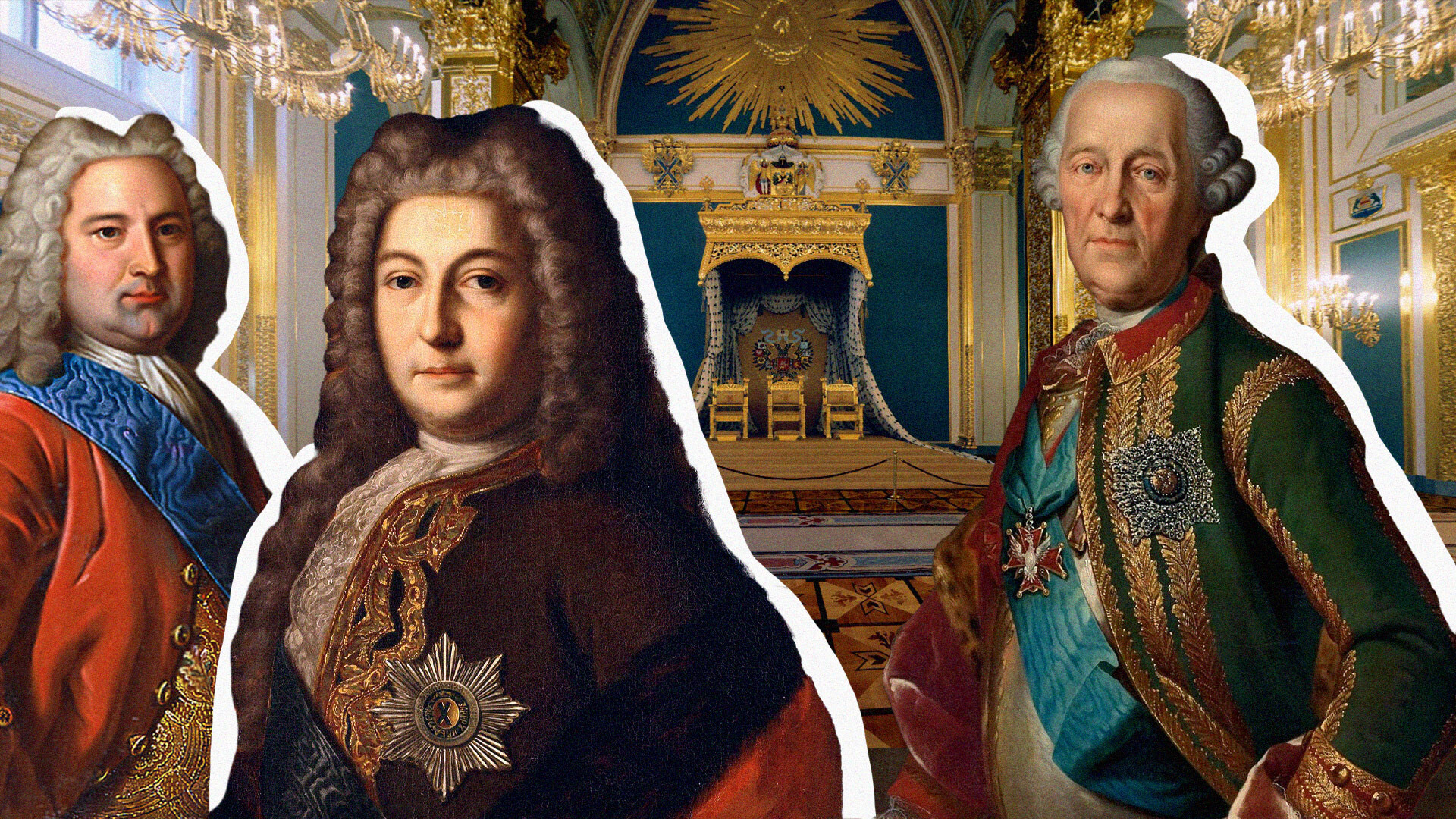
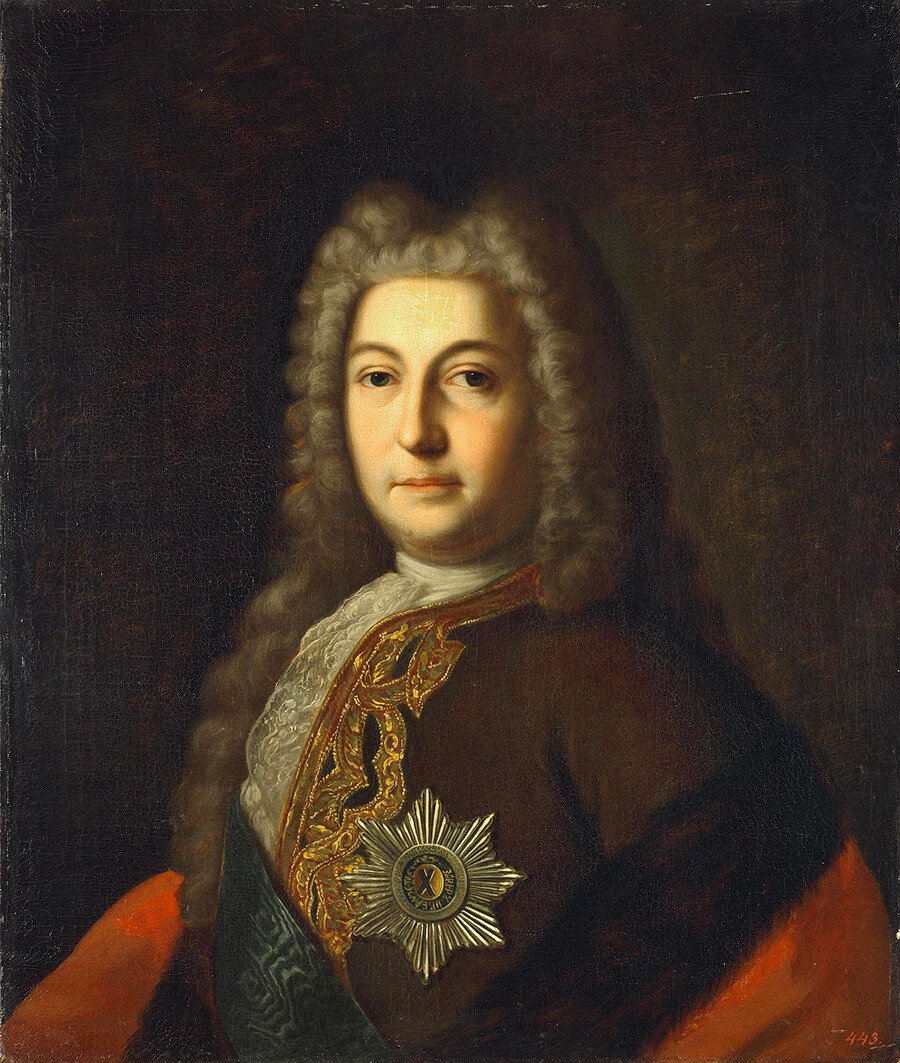
Andrey Osterman
The HermitageA cunning and ambitious Westphalian, Osterman began his illustrious career back under Peter the Great, but he flourished only after his passing, pitting two political groups against each other. The first one supported Peter II, the young grandson of Peter the Great; the second one, led by Alexander Menshikov, Peter the Great’s favorite, supported Catherine I, the spouse of the late emperor.
Having achieved victory, Menshikov practically headed the country. He patronized Osterman, who, at some point in the past, betrayed his other patron for him: the German entered the Supreme Privy Council (a council that dealt with the most important state matters) and became the mentor of Peter II. After Catherine I’s death, the 11-year-old Peter still inherited the throne with the regency of the Supreme Privy Council and, to strengthen his positions, Menshikov planned to marry his daughter to him.
However, facilitating the ascension of careerist Osterman was a mistake. As soon as disagreements with Peter II and Menshikov’s illness allowed it, the Westphalian along with other courtiers overthrew his patron, having managed to have Menshikov sent to Siberia.
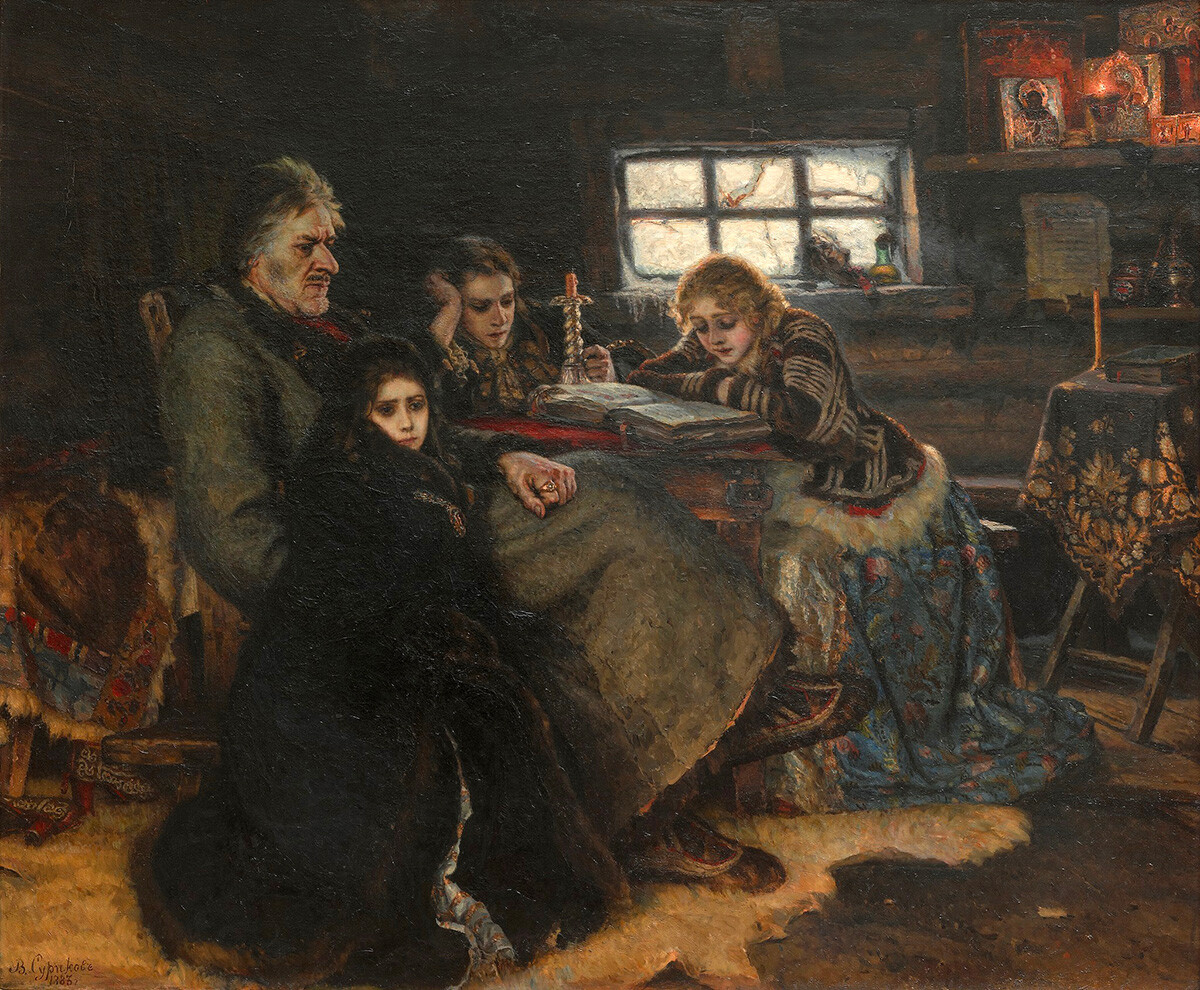
Vasily Surikov. Menshikov in Beryozovo
Tretyakov GalleryOsterman’s influence on state matters grew, but the struggle for influence over young Peter II grew as well. In such a situation, the German preferred to stay in the Supreme Privy Council as a “work horse” and an “Éminence grise”.
Among the courtiers and diplomats, the careful Osterman was known for his ability to pretend to fall ill in delicate situations. This tactic allowed him to cling to power after another change of monarch. Peter II died from an illness and the Supreme Privy Council elected a new ruler – the “convenient” niece of Peter the Great, Duchess of Courland, Anna Ioannovna. The politicians planned to limit her power with a list of demands, aka “the Conditions”.

Peter II (1715-1730)
Tretyakov GalleryOsterman was engaged in drawing this document; however, he managed to dodge signing it. The German assumed the role of a beholder – and for a good reason: the empress tore the Conditions apart, with that affirming her autocracy. Then, Osterman, who earlier had been in correspondence with her and, probably, secretly assisted her during her struggle for power, finally got well again.
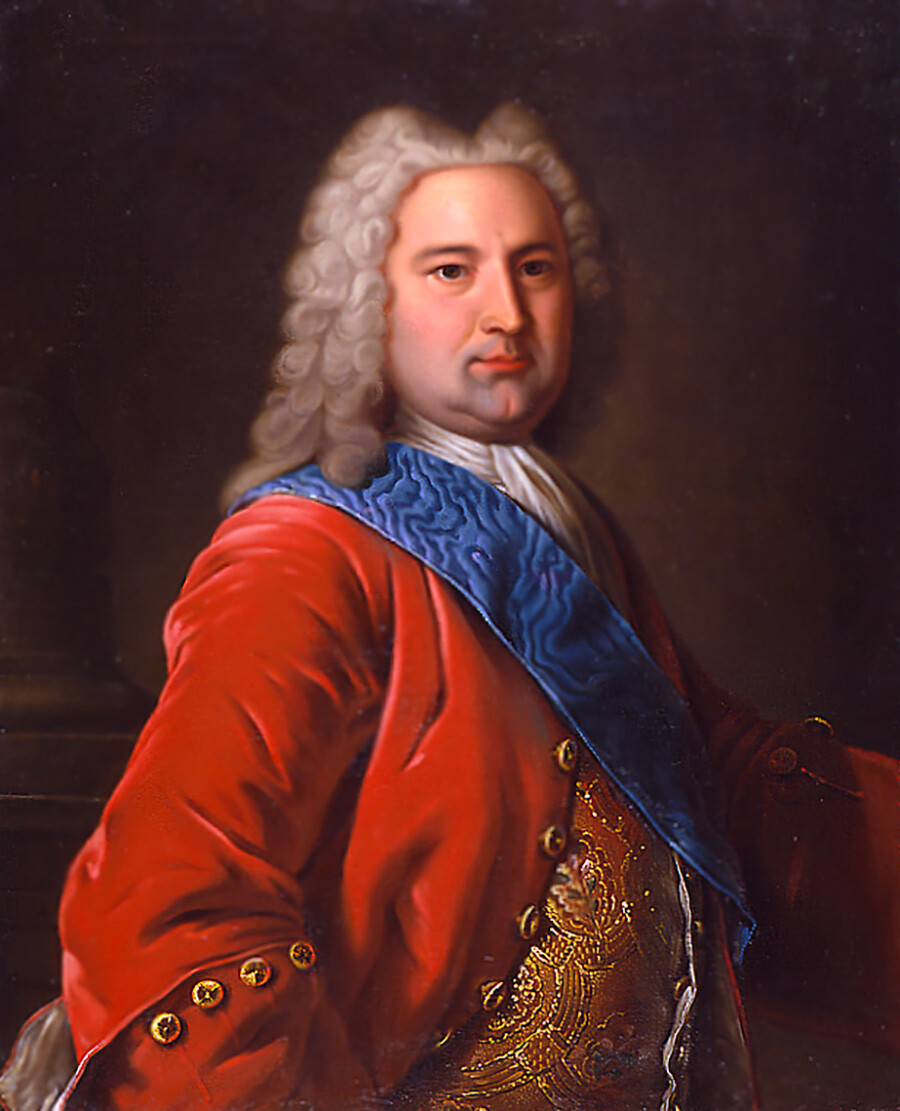
Ernst Johann von Biron
Rundāle PalaceSome historians call the reign of Anna Ioannovna Bironovshchina after her favorite, von Biron. He followed the empress to her court from Courland and had great influence on her all 10 years of her rule. She showered her favorite in honors and all state matters, according to contemporaries, passed through his hands – while Anna Ioannovna herself was relatively disinterested in them.
Historian Klyuchevsky believed that the empress didn’t trust Russians, so she surrounded herself with foreigners. “The Germans poured into Russia like rubbish from a sack full of holes; they swarmed the court, they were all over the throne, they snatched all profitable government positions.” Some, however, consider the theory of the “foreigners’ takeover” as baseless, since knowledgeable people came to Russia from abroad back under Peter the Great.
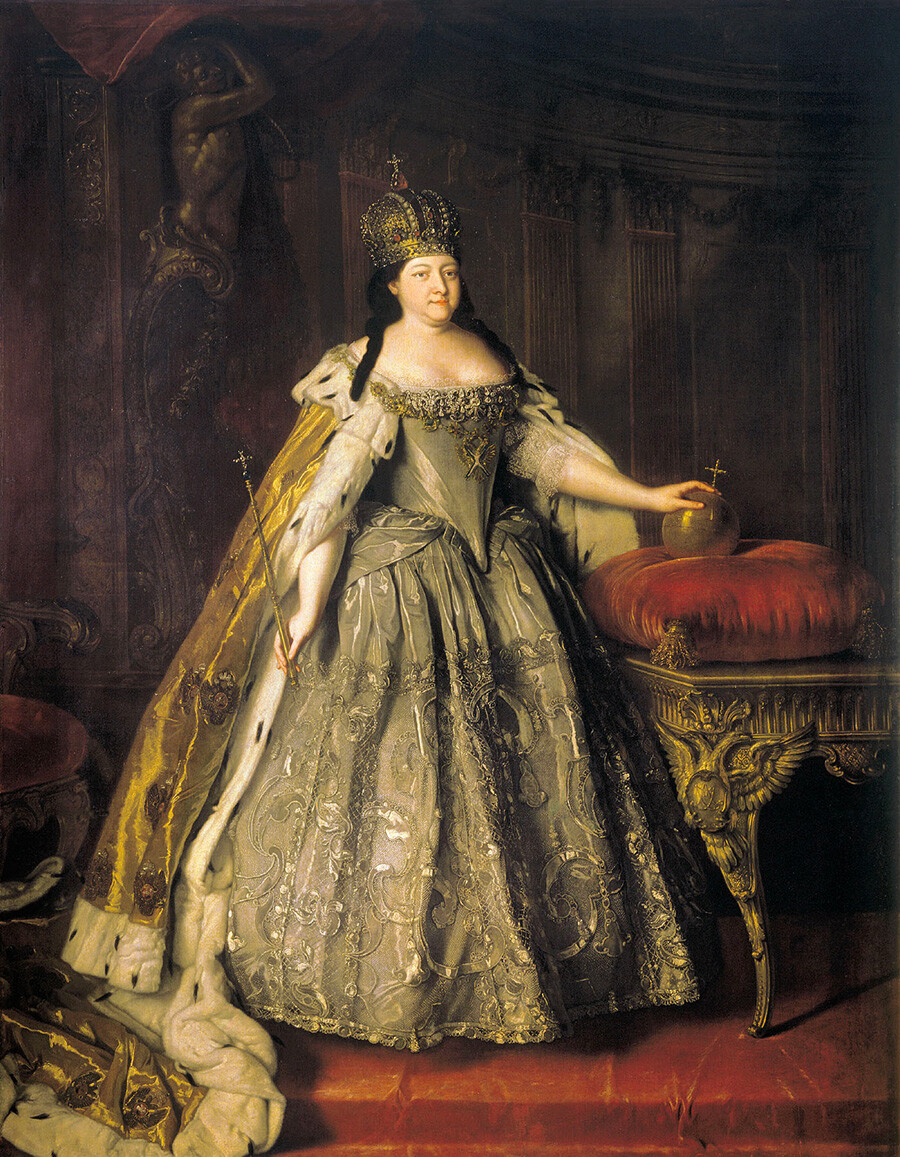
Louis Caravaque, Portrait of Empress Anna Ioannovna
Tretyakov GalleryThe power of von Biron is also contested: there are claims that real power belonged to Osterman and another German - von Münnich. Osterman remained close to the throne: he received the title of Count and was practically in charge of foreign policy; with his initiative and permanent membership, the Cabinet of Ministers became the supreme governing authority.
And yet, when Anna Ioannovna was struck with an illness, von Biron was appointed as a regent with her heir, infant Ivan Antonovich. It was said that he almost begged the empress on his knees to appoint him, afraid for his position after her death – not without cause, considering the amount of his enemies at court.
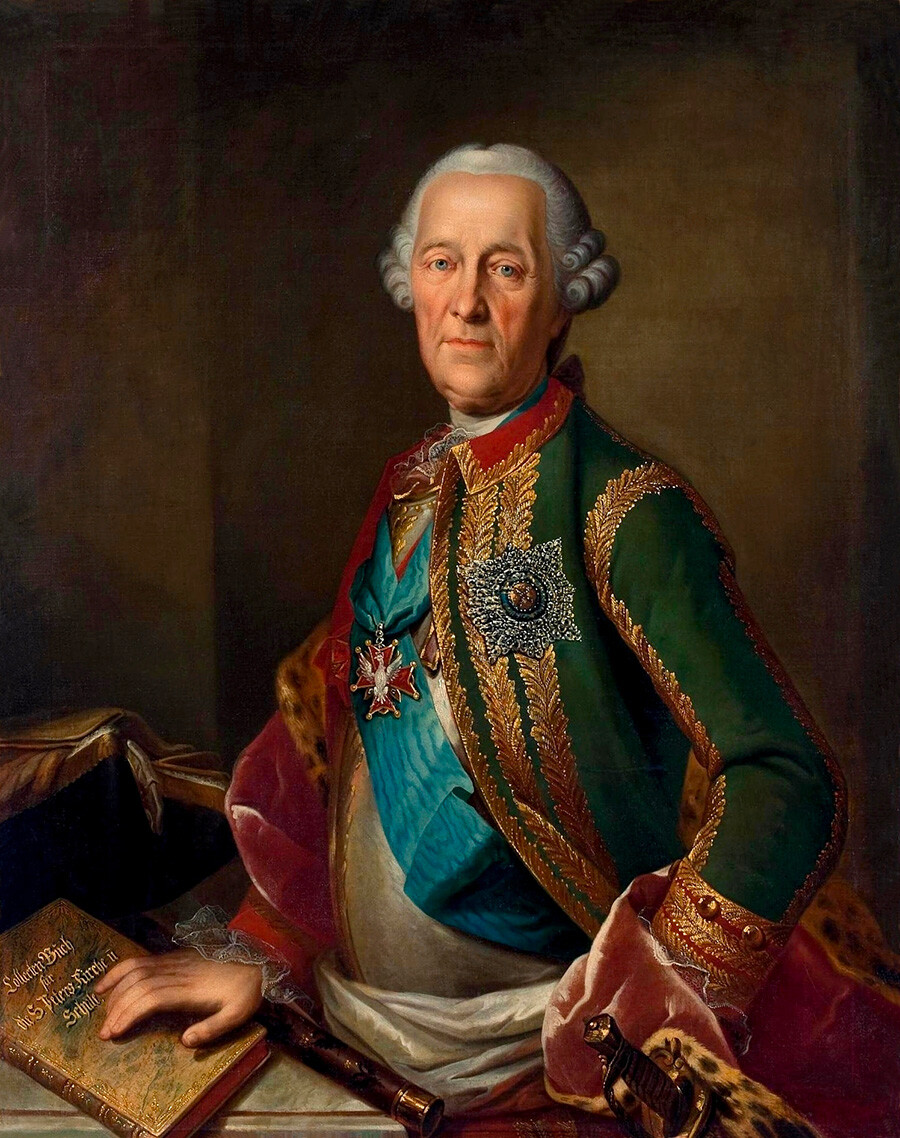
Christoph von Münnich
The HermitageThe ascension of Oldenburg engineer von Münnich began under Peter the Great. Under his grandson, Peter II, von Münnich was appointed as the governor of St. Petersburg and, showing himself to be a great administrator, he in any way possible supported the city that back then was deprived of its capital status. Then he received the title of Count and became the General-Governor of Ingria, Karelia and Finland.
Under Anna Ioannovna, von Münnich became close to Osterman and von Biron and his role at court grew. The German became a general field marshal, headed the War Collegiate, undertook several reforms of the military and received a range of awards as a commander who took part in several wars. However, the compatriots’ “triumvirate” crumbled under the constant competition for the empress’ favor, and the Germans began to conspire against each other.
After the death of Anna Ioannovna the mutual hatred between von Münnich and Osterman and their envy towards von Biron led to a new coup. In just several weeks, von Münnich led a plot against the regent, literally dragging him out of his bed at night and handing the power to the mother of the heir to the throne – to Anna Leopoldovna. Initially sentenced to quartering, von Biron was sent to an eternal exile to Siberia.
Von Münnich himself resigned from all his offices. According to historian Nikolai Pavlenko, he considered the gratitude of the new rulers insufficient and resigned, expecting Anna Leopoldovna to ask him to stay, but he miscalculated his move – because of Osterman’s intervention. Thus, the Westphalian remained the last member of the triumvirate who kept his position at the foot of the Russian throne.
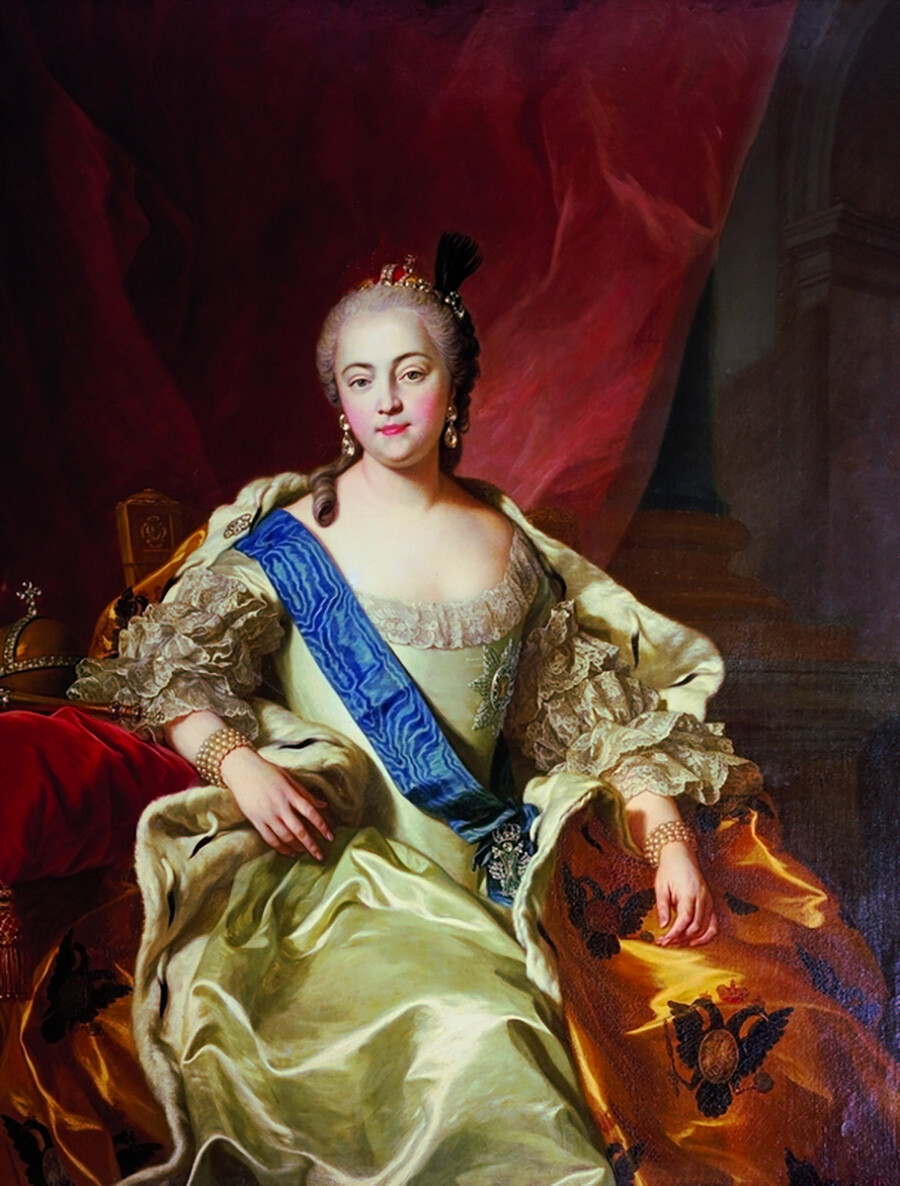
Carle Vanloo. Portrait of Empress Elizabeth of Russia
Peterhof museum-reserveBut that didn’t last: a little more than a year passed and Elizabeth Petrovna came to power, the daughter of Peter the Great and Catherine I. Osterman and von Münnich were brought to justice and sentenced to death, which, in both cases, was replaced by exile.
Ironically, Osterman went to Berezov, where he sent Menshikov earlier, while von Münnich went to Pelym, where von Biron was serving his sentence thanks to von Münnich. Osterman died in exile, von Biron and von Münnich were exonerated in time. The latter even managed to participate in another coup – however, he chose the side of Peter III who lost to his wife Catherine the Great.
Dear readers,
Our website and social media accounts are under threat of being restricted or banned, due to the current circumstances. So, to keep up with our latest content, simply do the following:
If using any of Russia Beyond's content, partly or in full, always provide an active hyperlink to the original material.
Subscribe
to our newsletter!
Get the week's best stories straight to your inbox